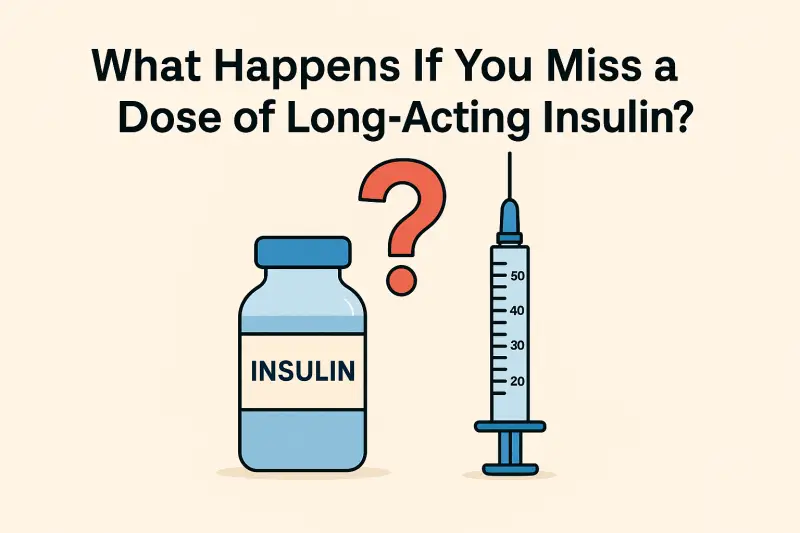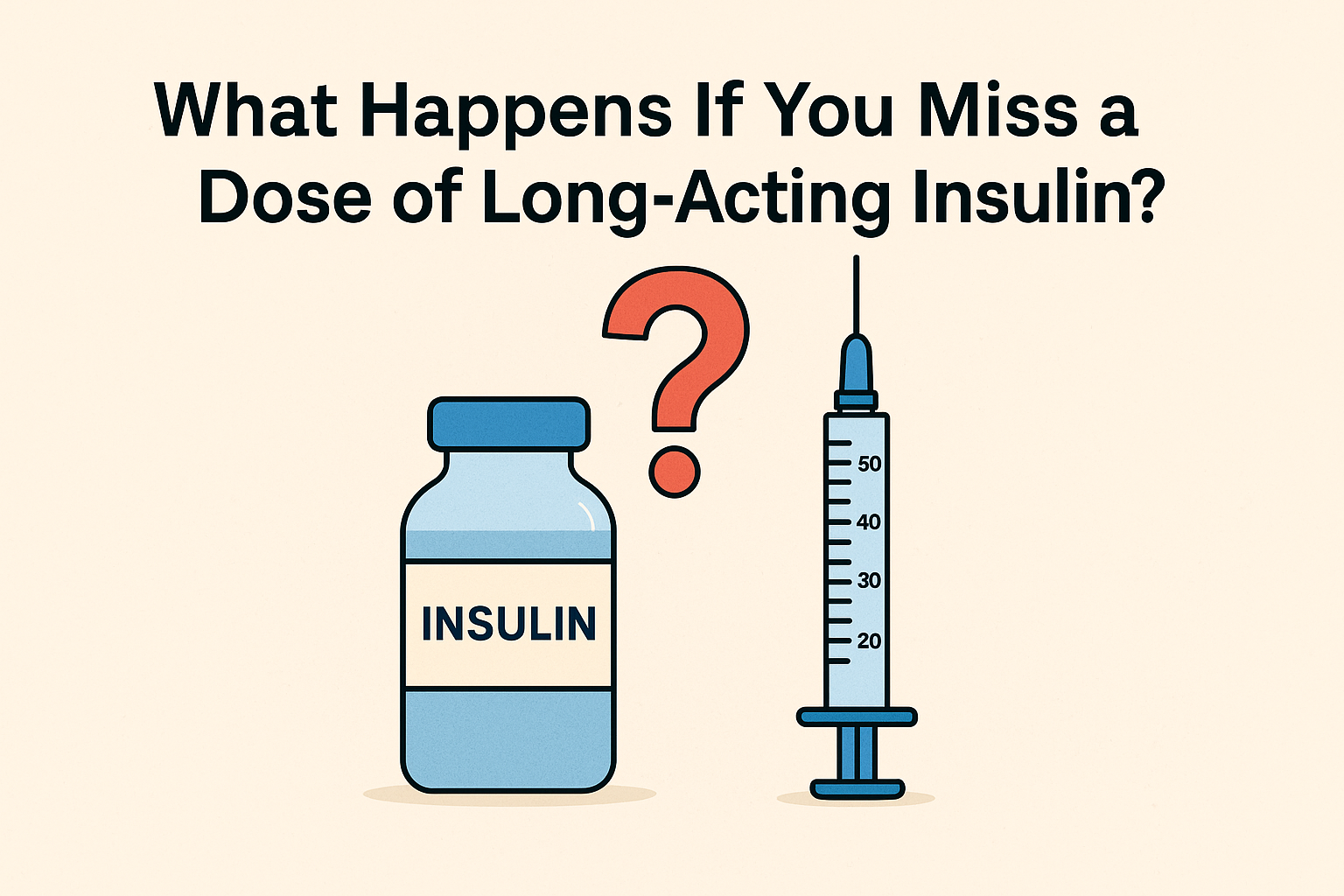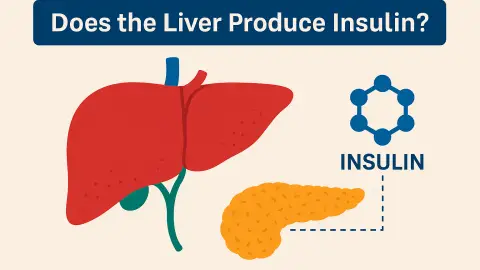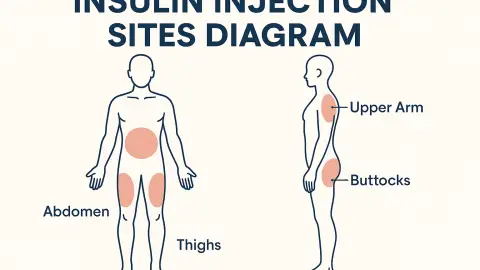Managing diabetes requires consistency, awareness, and careful attention to insulin timing. For those who depend on long-acting insulin—also known as basal insulin—missing a dose can cause worry and confusion. It’s a common mistake that can happen to anyone, whether due to a busy schedule, traveling, or simply forgetting. However, understanding what happens when you skip a long-acting insulin dose and knowing what to do next can make a big difference in preventing serious complications.
This article explains in detail what occurs in your body when a basal insulin dose is missed, the short-term and long-term effects, how to respond appropriately, and practical strategies to avoid missing doses in the future.
What Is Long-Acting Insulin?

Understanding Basal Insulin
Long-acting insulin provides your body with a steady background level of insulin throughout the day and night. Unlike rapid-acting insulin, which covers meals, long-acting insulin maintains blood sugar stability between meals and overnight. It helps prevent the liver from releasing too much glucose into the bloodstream and ensures your body has a continuous insulin supply.
Common Types of Long-Acting Insulin
Some of the most commonly used long-acting insulins include insulin glargine (Lantus, Toujeo), insulin detemir (Levemir), and insulin degludec (Tresiba). Each has a slightly different duration, ranging from 20 to more than 40 hours, depending on the formulation and the individual’s metabolism.
Why Consistency Matters
Long-acting insulin is designed to work slowly and evenly, maintaining stable glucose levels throughout the day. Missing or delaying your dose disrupts this balance, causing blood sugar to rise and increasing the risk of complications. Keeping a consistent schedule is vital for effective diabetes management.
Immediate Effects of Missing a Dose
Rising Blood Sugar Levels
When a basal insulin dose is missed, your blood glucose can begin to rise within hours. Without enough insulin to help glucose enter your cells, your liver continues to release glucose into the bloodstream. This leads to hyperglycemia—high blood sugar—which may cause symptoms like thirst, frequent urination, fatigue, blurred vision, and dry mouth.
Ketone Build-Up and Risk of DKA
For people with type 1 diabetes, missing a basal dose can lead to the production of ketones. When insulin levels drop too low, the body starts breaking down fat for energy, producing acids called ketones. If ketones accumulate, it can result in diabetic ketoacidosis (DKA)—a potentially life-threatening emergency that requires immediate medical attention.
Possible Blood Sugar Fluctuations Later
If you realize you missed your insulin and take it late, your blood sugar might drop too low later in the day, especially if the delayed dose overlaps with your next scheduled injection. This could cause hypoglycemia, which brings symptoms such as sweating, dizziness, shakiness, and confusion.
How Serious Is a Missed Dose?
Factors That Influence the Impact
The seriousness of a missed dose depends on several factors, including how much time has passed since the scheduled injection, your type of diabetes, how much insulin your body still produces naturally, and how closely you monitor your blood glucose and ketones.
Short-Term and Long-Term Risks
In the short term, you may experience high blood sugar, dehydration, or the development of ketones. Over the long term, repeated missed doses can lead to poor glucose control, higher HbA1c levels, and an increased risk of diabetes complications such as nerve damage, vision problems, kidney disease, and cardiovascular issues.
Why Timing Is Crucial
Even a few hours’ delay in long-acting insulin can affect your overall blood glucose pattern. Consistency in timing helps maintain the right balance between insulin absorption and glucose production, preventing wide fluctuations.
What to Do If You Miss a Dose of Long-Acting Insulin
Step 1: Stay Calm and Assess the Situation
The first step is to remain calm. Check your blood glucose as soon as you realize you missed your dose. If your glucose is high, and you have the means, check your ketone levels—especially if you have type 1 diabetes. Determine how many hours have passed since your usual injection time.
Step 2: Decide When to Take the Dose
If you remember within two hours of your scheduled time, it’s generally safe to take your full usual dose. If more than a few hours have passed, it’s often recommended to take half of your usual dose and then resume your normal schedule the next day. However, this can vary depending on your insulin type and your doctor’s specific instructions.
Never double up on doses to “catch up,” as this can lead to dangerously low blood sugar later.
Step 3: Monitor Closely
After taking a late or partial dose, check your blood sugar more frequently over the next 24 hours. This helps you track any unusual fluctuations and react quickly if levels become too high or too low. Watch for signs of hyperglycemia (excessive thirst, fatigue, frequent urination) or hypoglycemia (sweating, dizziness, weakness).
Step 4: Adjust Meals and Activity
Try to eat balanced meals and avoid large amounts of carbohydrates until your insulin schedule stabilizes. Stay hydrated and avoid vigorous exercise until your blood sugar levels are back within target range. If you use mealtime insulin, adjust your rapid-acting doses carefully according to your glucose readings.
Step 5: Resume Your Normal Schedule
Once your next scheduled time arrives, return to your regular injection routine. Consistency is key. If you’re unsure about how to restart, contact your healthcare provider or diabetes educator for personalized advice.
Potential Complications to Watch For
Hyperglycemia
A missed dose commonly results in high blood sugar. Symptoms include dry mouth, thirst, frequent urination, blurry vision, and fatigue. Prolonged hyperglycemia can cause dehydration and worsen other diabetes-related conditions.
Diabetic Ketoacidosis (DKA)
For people with type 1 diabetes, missing even one dose can lead to DKA within 24 hours if blood glucose and ketones are not managed. Signs include nausea, vomiting, abdominal pain, rapid breathing, and a fruity odor on the breath. DKA is a medical emergency that requires immediate treatment.
Hypoglycemia
If you inject your basal dose late and overlap it with the next day’s dose, or take extra insulin to compensate, you risk hypoglycemia. Early warning signs include shakiness, sweating, irritability, and confusion. Severe cases may cause fainting or seizures.
How to Prevent Missing a Dose in the Future
Build a Routine
The most effective prevention method is to tie your insulin injection to a specific daily habit—such as brushing your teeth or preparing for bed. Creating a consistent routine helps make insulin administration second nature.
Use Technology to Help
Set reminders on your phone, smartwatch, or alarm clock. Some insulin pens and smart devices can log the time of your last dose, helping you track your schedule. Apps designed for diabetes management can also send alerts if you forget to inject.
Keep Spare Supplies Ready
Always carry an extra insulin pen or vial when you travel or leave home for extended periods. Keep your insulin properly stored, and ensure you have enough syringes, needles, and alcohol wipes available at all times.
Communicate With Your Healthcare Team
If you find yourself missing doses regularly, discuss this with your healthcare provider. They may suggest a different insulin type, dosing schedule, or technology that suits your lifestyle better. In some cases, switching to an insulin pump or ultralong-acting insulin can reduce missed-dose risks.
Track Your Patterns
Review your blood glucose logs and note when you tend to forget doses. Identifying patterns—like weekends, work shifts, or travel—can help you plan ahead and avoid recurring mistakes.
Frequently Asked Questions
What Should I Do If I Remember My Dose the Next Morning?
If it’s only been a few hours since your scheduled time, take your regular dose immediately. If it’s already close to your next scheduled dose, take half the usual amount and resume your normal schedule later that day. Always monitor your glucose levels closely afterward.
Can I Take Double the Next Dose to Make Up for the Missed One?
No, you should never double up on insulin doses. Doing so can cause severe hypoglycemia, which can be dangerous. Instead, follow your usual schedule and monitor your blood sugar carefully.
What If I Keep Forgetting My Long-Acting Insulin?
If this happens often, speak with your healthcare team. They might recommend an alternative insulin formulation, such as a once-weekly injection or an insulin pump, depending on your needs.
How Long Can I Wait Before It’s Too Late to Take the Missed Dose?
The safe window varies by insulin type, but as a general rule, if it’s within two hours of your usual time, take the full dose. Beyond that, it’s safer to take a reduced amount or wait until the next scheduled injection.
Does Missing One Dose Always Cause High Blood Sugar?
Not always. The impact depends on your body’s insulin production, activity level, diet, and other medications. However, even one missed dose can affect blood glucose stability, so prompt correction is always best.
Example Scenario
Imagine you normally inject your long-acting insulin at 10 p.m. One night, you forget and realize it the next morning at 7 a.m. You check your blood sugar, which is slightly elevated. You decide to take half your normal dose immediately and resume your full usual dose that evening at 10 p.m. Throughout the day, you check your blood glucose more frequently and notice it stabilizing.
By the next night, your schedule is back to normal, and you set a daily reminder to prevent another missed dose. This approach helps you avoid both high and low blood sugar swings while maintaining control.
Key Takeaways
-
Missing a dose of long-acting insulin can cause elevated blood glucose and ketone buildup, especially in type 1 diabetes.
-
The appropriate response depends on how late you are—usually within two hours, you can take the full dose; after that, consider a reduced dose and resume your schedule.
-
Never take double doses to compensate.
-
Monitor your blood sugar and ketones closely after a missed dose.
-
Prevent future missed doses by setting reminders, creating a consistent routine, and discussing options with your healthcare provider.
-
Always have a plan in place for handling missed doses safely.
Conclusion
Missing a dose of long-acting insulin can happen to anyone, but knowing what to do can prevent serious problems. The key is to act quickly, monitor your blood sugar, and resume your normal routine as soon as possible. Staying consistent with your insulin schedule helps maintain steady glucose levels and keeps your diabetes under control.
With planning, reminders, and support from your healthcare team, you can manage these situations confidently and keep your health on track. Always remember—one missed dose isn’t the end of your control, but learning from it helps you stay stronger and more prepared for the future.
Disclaimer: This article is for educational and informational purposes only and does not substitute professional medical advice. Always consult your doctor, endocrinologist, or certified diabetes educator before making any changes to your insulin regimen or diabetes care plan. The author and publisher assume no responsibility for any outcomes resulting from the use or misuse of the information provided here.



